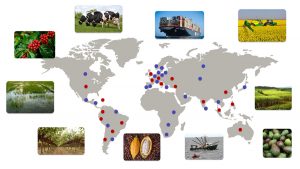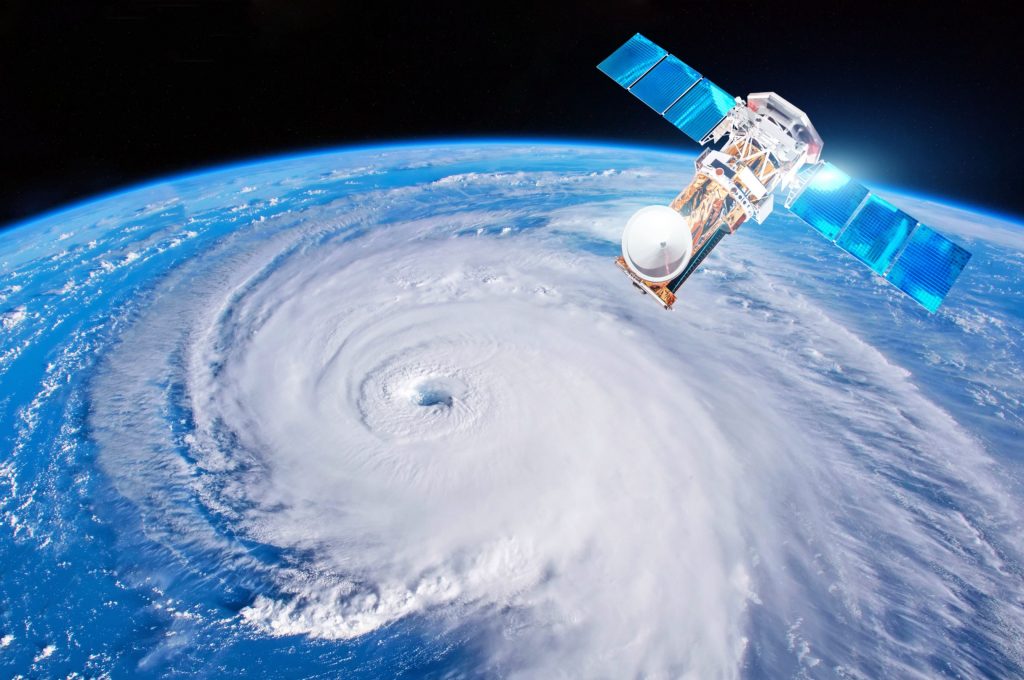Delivering Agricultural Innovation Worldwide
Marketing


There are huge opportunities and challenges facing the earth, from climate change and recovering from COVID to autonomy. Many of these are going to require strong international collaboration to achieve success. At the same time, the UK is re-imaging its position and international relationships post-Brexit. Our work in Agriculture here at the Satellite Applications Catapult is at the forefront of this as we work with organisations from across supply chains, government, and research around the world to tackle issues, deliver innovations and ensure we benefit populations and the environment.
In the 21st Century, the kind of growth required in agriculture can be enabled through effective use of Agri-Tech. The incorporation of new observation sources, such as satellite images, drones, or ground sensors; biotechnological development, and automation are all areas that the UK excels.
While Agri-Tech offers solutions to generate transformative changes with a positive impact on environmental, social, and economic aspects, there is still a long way to go to effectively reach small and vulnerable producers which is where we can lead. We are working to create the right enabling actions to ensure we can harness the power of satellite technology innovations to help transform global agricultural prospects.

The need for the Catapult to be developing major international opportunities has hence never been higher. The Catapult attracts major international finance and builds partnerships to help deliver at scale and creates export opportunities to support UK growth.
Two prime examples of this are our work to support value transformation such as within COLCO and Colombia’s cocoa sector and our IFSAC (Improving Food Security and Agricultural Competitiveness in Colombia, Peru, and Paraguay) Project which saw us working with users from across the agricultural sector in Latin America to educate and demonstrate how satellite technologies can help optimise the production of rice, soybean and table grapes.
Climate change and a growing global population, with rising incomes, means the largest businesses in the global agri-food industry are facing unprecedented challenges, channelled by an ever-pressing end-customers’ demand for transparency, accountability, and, ultimately, sustainability. As such, regions are developing to adapt to improve quality and quantity.

Achieving a true transformation of food systems will require a holistic approach that engages all stakeholders and deploys a wide array of actions such as improved policy, farmer capacity-building, and improved resource management. We foresee Agri-Tech playing an important role in enabling and accelerating food systems transformation, not only to improve sustainability and resource growth, but also to ensure that the sector is able to deliver the Sustainable Development Goals by 2030; requiring food systems that are inclusive, sustainable, efficient, nutritious, and healthy. A systems approach to supportive policies can enable contributions to the SDGs.
The profile of the space sector, the profile of the Catapult, and the capability of the UK space sector to deliver is developing rapidly. With partners like OneWeb (and their exportable supply chains), a dynamic sector capable of starting small and iterating fast, growing capability across geospatial intelligence and ubiquitous connectivity and a progressive UK Space Agency with an increased international focus, the starting conditions are good for success.
Over recent years the Catapult created strong examples of potential approaches and vehicles internationally with our agriculture values team interacting with over 50 countries. The Catapult has set-up a JV centre in China, employed dedicated staff in South America and the US, created a branded export vehicle for UK companies (EASOS), and set-up good relationships in many countries. It has long been recognised that the UK will need to build towards greatly increased export of both equipment and services if the space sector is to be successful in reaching its £40Bn target by 2030. Ultimately, the aim is to support strong UK exports.
Our Neutral Trusted Entity (NTE) status is a huge advantage that provides the opportunity to convene consortia and drive collaboration and partnerships needed to enable systemic change. UK partners such as the UK SA and the Department for International Trade are giving increased focus to international partnerships. Working with our UK partners, the Catapult is aiming to become the go-to organisation for any initiative that requires active engagement of the UK ecosystem. The Catapult aims to help businesses to unlock customer demand, to open new markets, to drive export, and to attract foreign direct investment.
The Catapult delivers bespoke services depending on the need of the customer. Although there are no fixed modes of interventions, to accelerate strategic International activity, the Catapult can draw upon previous examples to provide a template / guidance for facilitation, for example: